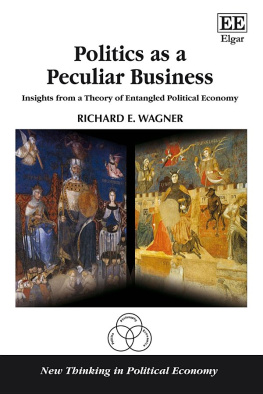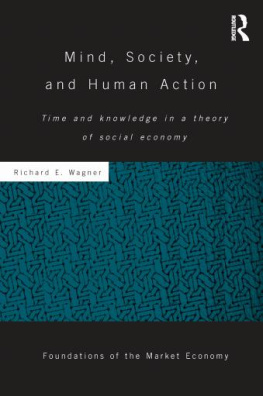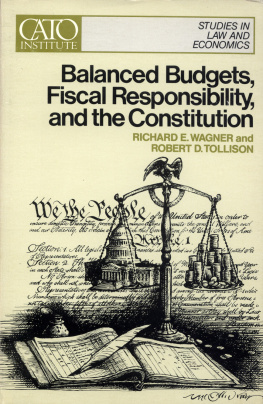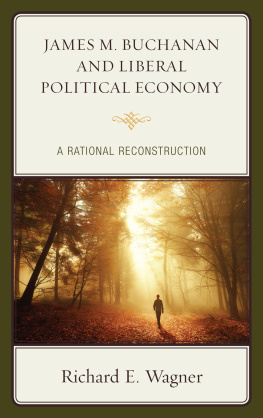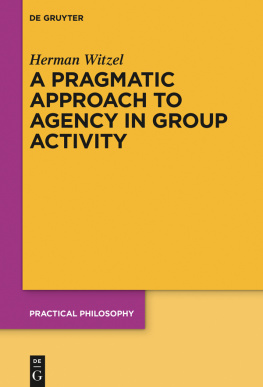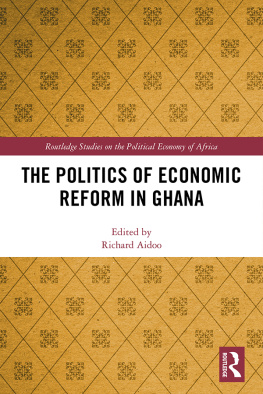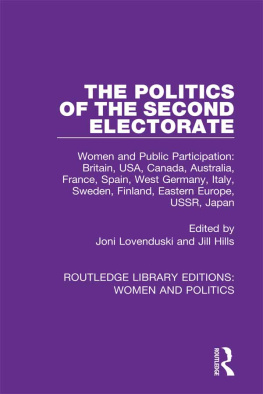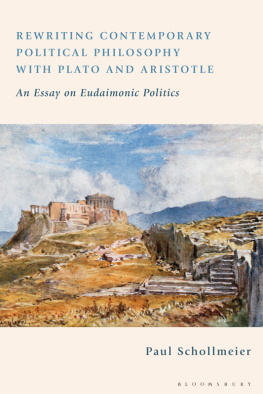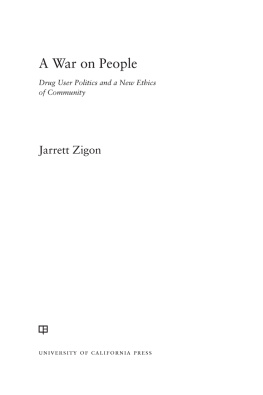Richard E. Wagner - Politics as a Peculiar Business: Insights from a Theory of Entangled Political Economy
Here you can read online Richard E. Wagner - Politics as a Peculiar Business: Insights from a Theory of Entangled Political Economy full text of the book (entire story) in english for free. Download pdf and epub, get meaning, cover and reviews about this ebook. year: 2016, publisher: Edward Elgar Pub, genre: Politics. Description of the work, (preface) as well as reviews are available. Best literature library LitArk.com created for fans of good reading and offers a wide selection of genres:
Romance novel
Science fiction
Adventure
Detective
Science
History
Home and family
Prose
Art
Politics
Computer
Non-fiction
Religion
Business
Children
Humor
Choose a favorite category and find really read worthwhile books. Enjoy immersion in the world of imagination, feel the emotions of the characters or learn something new for yourself, make an fascinating discovery.
- Book:Politics as a Peculiar Business: Insights from a Theory of Entangled Political Economy
- Author:
- Publisher:Edward Elgar Pub
- Genre:
- Year:2016
- Rating:5 / 5
- Favourites:Add to favourites
- Your mark:
Politics as a Peculiar Business: Insights from a Theory of Entangled Political Economy: summary, description and annotation
We offer to read an annotation, description, summary or preface (depends on what the author of the book "Politics as a Peculiar Business: Insights from a Theory of Entangled Political Economy" wrote himself). If you haven't found the necessary information about the book — write in the comments, we will try to find it.
- Randall G. Holcombe, Florida State University, US
Wagner sees a complex web of interrelations (entanglements) between the public and private spheres of human action in which neither set of actors operates independently of the other. Combining insights from Austrian economics, such as the impossibility of economic calculation in the absence of explicit price and profit signals, the methodological individualism of public choice scholars and an analytical approach that rejects partial equilibrium models in favor of systems thinking about markets and governments, Politics as a Peculiar Business ranges widely to ask and answer important questions about the foundations of a free society, including how to undo the Faustian bargain between citizens and an overweening state.
- William F. Shughart II, Utah State University, US
Political competition, like market competition, is a discovery process. But politics involves many people paying different costs to settle on one outcome, where markets involve many people responding in different ways to a single market price. As Wagner points out in this lively book, the two processes are entangled, so analyses that separate politics and markets mislead. Worse, politics have ensnared markets, as mechanisms created to protect economic liberty increasingly promote political control instead. Politics in the US is a business, a peculiar business. And Wagners book is a profound step toward understanding the reasons, and implications, of this fact.
- Michael C. Munger, Duke University, US
Economists typically treat government as something outside the business realm, a sort of Lord of the Manor. Richard Wagner argues that this is the wrong approach and can ultimately be destructive to capitalism and to society.
Modern governments are a peculiar form of business enterprise. They face the same problems as regular businesses, such as ascertaining demand and organizing production, and act within the system in a way that can lead to a parasitical relationship with the market. Largely rooted in political economy, this book develops new theoretical ideas and formulations to explain why democracy is a difficult form of government to maintain. The author explores how and why limited governments can morph into a system of destructive politics, and looks at ways to escape this process.
This dynamic book will be useful for public choice scholars, economists, political scientists, and lawyers who are interested in political economy in its various guises.
Richard E. Wagner: author's other books
Who wrote Politics as a Peculiar Business: Insights from a Theory of Entangled Political Economy? Find out the surname, the name of the author of the book and a list of all author's works by series.

